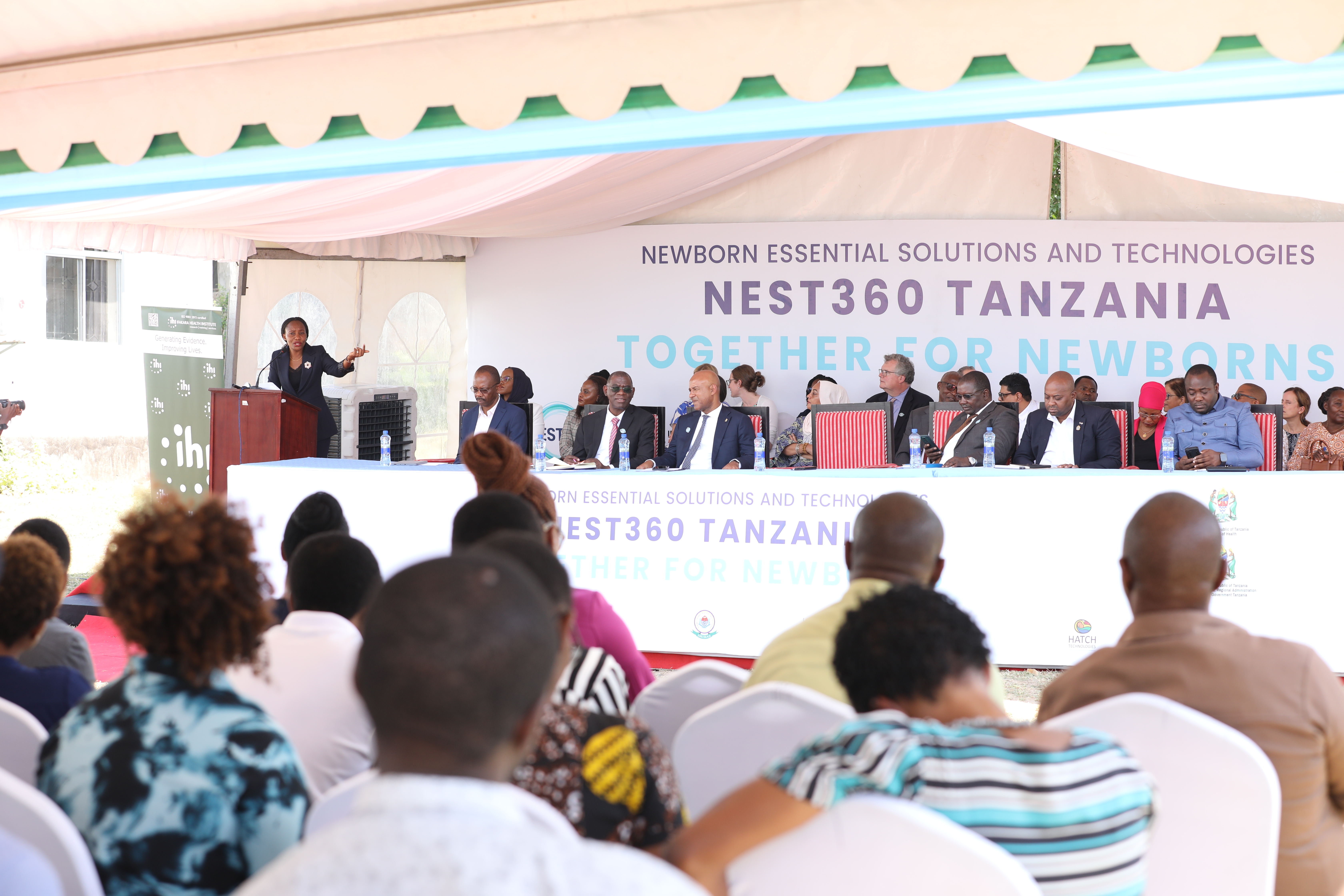
LAUNCH: NEST360 officially kicks off its second phase in Tanzania

Today, the Ministry of Health and the NEST360 Alliance have launched Phase 2 of the Newborn Essential Solutions and Technologies (NEST360) program, implemented by the Ifakara Health Institute and its partners in Tanzania at the Ubungo District Hospital in Dar es Salaam.
This important initiative aims to improve the quality of care for newborns across Tanzania, demonstrating the government’s commitment to improving maternal health and newborn survival.
Phase 2 of NEST360 builds on the achievements of its first phase, focusing on scaling up newborn care within districts and enhancing quality coverage and care of newborns throughout Tanzania and Zanzibar. The NEST360 Alliance, consisting of an international alliance of clinicians, biomedical engineers, and public health experts, will work to showcase the benefits of these improvements.
Facility tour
As part of the launch, a high-level delegation from Rice University led by its President, Reginald DesRoches, paid a visit to the project sites in Mwananyamala Referral Hospital and the Ubungo District Hospital, where they witnessed firsthand the flow of services that mothers and newborns get supported by the equipment and training offered by the NEST360 program.
During the launch, key NEST360 implementers in Tanzania which includes Dar Es Salaam Institute of Technology, Ifakara Health Institute, London School of Hygiene and Tropical Medicine, Muhimbili University of Health and Allied Sciences, Hatch Technologies, and the Rice360 Institute for Global Health Technologies, joined forces with the Ministry of Health.
Together, they aim to mobilize and strengthen health systems, highlighting a united front to improve newborn and maternal healthcare as emphasized by the guest of honor Deputy Permanent Secretary for the Ministry of Health, Dr. Grace Magembe who thanked them for their collaboration.
Dr. Nahya Salim Masoud, NEST360 Steering Committee Deputy Chair and a clinical pediatric specialist at the Muhimbili University of Health and Allied Sciences, emphasized the importance of teamwork. “In Tanzania, we need to move together to accelerate the implementation of quality newborn care for every mother and baby throughout the continuum of care,” she said, adding, “Tanzania has an opportunity to lead and learn within the partnership of NEST360 to improve access to quality newborn care and to build equity into our system for every mother and baby.”
Despite progress, Tanzania still faces a newborn mortality rate of 24 per 1,000 live births, with over 46,000 newborn deaths each year. The United Nations Sustainable Development Goals (SDG) aim to reduce this rate to 12 per 1,000 live births by 2030. NEST360, an evidence-based health systems package, is designed to help achieve this goal by improving newborn care across Africa.
This is a developing story, follow for updates.
About NEST360
Newborn Essential Solutions and Technologies (NEST360) is a global consortium committed to reducing newborn deaths by 50% in hospitals, currently conducted in Tanzania, Kenya, Malawi, and Nigeria. The program is an evidence-based model for sustainable health system change to close the gaps in technology, markets, and human resources for the implementation of quality hospital-based newborn care on a national scale.
In Tanzania, the NEST program works in close collaboration with the Ministry of Health, to improve the quality of comprehensive newborn care units as stipulated in the National guideline for neonatal care and the establishment of neonatal care units.
Phase I of the program started in three tertiary hospitals: Muhimbili National Hospital (MNH Upanga), Muhimbili National Hospital (MNH Mloganzila), and Mbeya Zonal Referral Hospital. Implementation at Kilimanjaro Christian Medical Centre (KCMC) followed. The three regional referral hospitals in Dar es Salaam: Mwananyamala, Amana, and Temeke.
